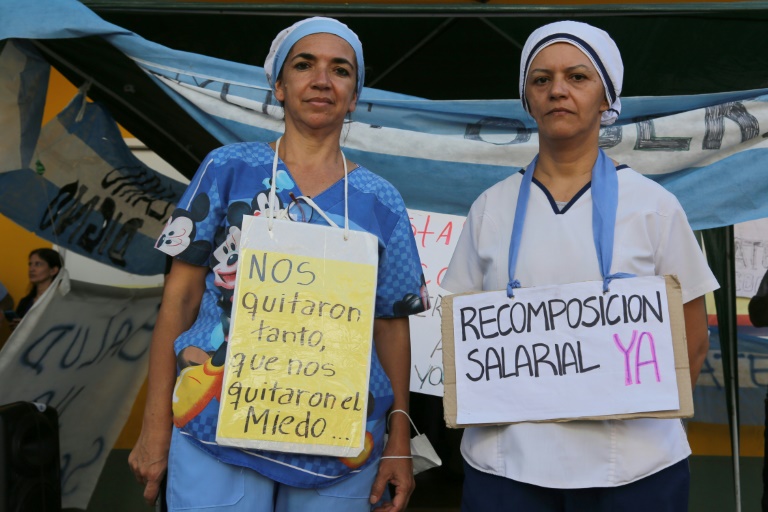Argentina’s economic activity continued to plummet in March, with the construction and manufacturing industries leading the slowdown as President Javier Milei’s government slashes spending, official figures showed Wednesday.
The national statistics agency, INDEC, said that economic activity had slowed 8.4 percent year-on-year in March — the biggest such interannual change since the Covid pandemic.
Milei took office in December, vowing to halt Argentina’s economic decline and reduce the budget deficit to zero.
He slashed public spending, cut the cabinet in half, did away with tens of thousands of government jobs, suspended new public works contracts and ripped away fuel and transport subsidies.
He also devalued the peso by 50 percent, and the measures have hit consumers hard. While inflation is slowing, prices are still up some 290 percent from the previous year.
“Without a doubt, the path that the level of activity is following already speaks of a recession,” Joel Lupieri, an economist at the consulting firm EPyCA, told AFP.
The construction industry saw economic activity drop 29.9 percent year-on-year after Milei cancelled almost all public works.
“Today, national public works are almost 100 percent stopped,” Gustavo Weiss, president of the Argentine Chamber of Construction, told Forbes magazine in May, adding 100,000 jobs had been lost in the sector.
Lupieri said that beyond the disappearance of government works, “the sustained increase in the price of materials also leads to a fall in private demand.”
Manufacturing activity dropped 19.6 percent, as aluminum and steel factories, automakers and tire manufacturers laid off workers and cut production.
The only areas that saw an uptick in activity were agriculture and livestock, which increased 14.1 percent and mining, which is up five percent.
The overall slump in activity is on its fifth consecutive decline since November.
“It is unlikely that a rebound will be evident before the second half of the year,” said Lupieri.
The consulting firm Equilibria estimates a total 240,000 job losses in the first quarter of 2024.
The latest official data from INDEC in 2023 said some 41 percent of the country was living in poverty.
A more recent study from March this year by the Catholic University puts this figure at 55 percent.
The International Monetary Fund expects that Argentina’s economy will contract by 2.8 percent this year.
Last week, it welcomed “faster-than-anticipated progress in restoring macroeconomic stability” in the South American country, but also warned of a “long and difficult road ahead.”







